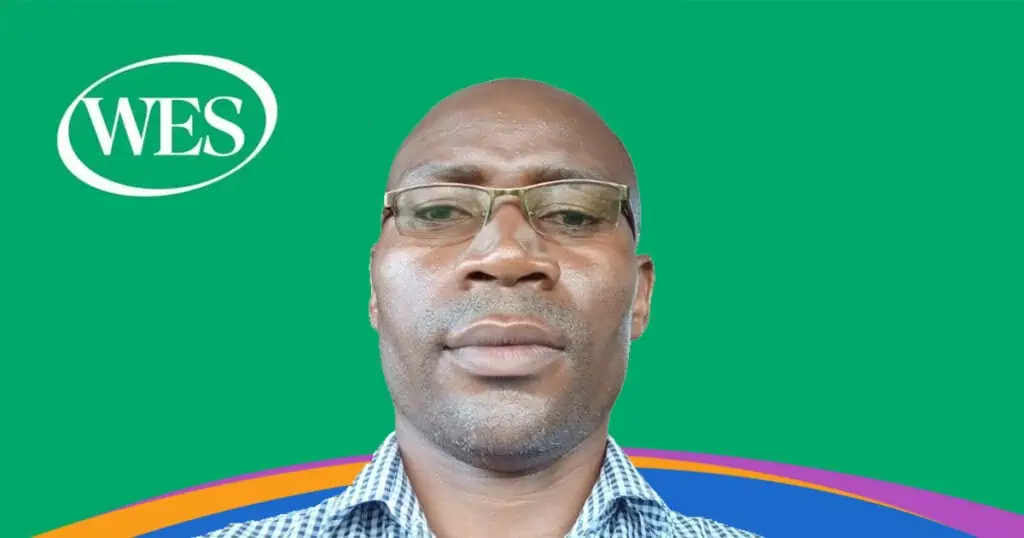Immigrant Success Story: How to Find a Job After Graduate School
Antonnet Botha is a Senior Training & Events Development Coordinator at WES.
She traveled from South Africa to the United States to pursue a master’s degree in international business. Upon graduation, she completed Curricular Practical Training (CPT).
However, with both a graduate degree and work experience, she did not find it easy to immediately find fulfilling work in her field.
In the article below, she discusses her job search journey—and how a college career adviser helped her succeed.
Read Antonnet’s story to learn from her experience and find out how international students can prepare to enter the workforce after graduation.
I left South Africa to attend graduate school in the United States in 2015. I did it just to shake up my life. But I had not done research about what would happen after I completed my master’s degree. I had never heard of CPT (Curricular Practical Training) and OPT (Optional Practical Training).
I planned on leaving immediately after graduation, but ended up staying in the U.S. Then, I was at a slight disadvantage because I had not done the appropriate research before moving overseas. But I had a lot of help from my university’s career adviser.
This article is about my experience and the sacrifices I made to get to where I am today.
Here are some tips that might help you get a job after completing graduate school:
Let Go of Expectations
Because I had a master’s degree, I thought I could skip entry-level jobs. At first, I was not willing to compromise. When I completed my CPT, I was convinced that I would get a job as a manager. But after applying for several jobs, I realized my expectations were not going to be met.
Finally, I accepted an internship. Then I took the entry-level job I was offered afterward. Now I find myself transitioning into a job that I feel more challenged by. Letting my expectations go was the best decision. I learned more on the job than I did in a classroom—and now I am ready for the next level.
Learn About Job Search Culture in the U.S.
Applying for jobs in the U.S. is very different than it is in South Africa. You are limited to a one-page résumé here; but in South Africa, two pages is typical. LinkedIn is an important tool. You have to apply to a lot of jobs to get one interview, and you often do not hear back from companies.
One piece of advice I frequently received was “apply for as many jobs as you can.” I refused to do this. I still believe that if you are applying to so many jobs, in a short time span, your applications start to lose quality.
I applied to about 20 jobs with a low-quality application. Needless to say, I did not hear back from those companies. The job applications that I spent time on typically resulted in an interview. Otherwise, I would at least get a response from the company saying that they would not move forward with my application.
In South Africa, very few people use LinkedIn. So when my master’s degree program insisted that we all create or update our LinkedIn profiles, I was skeptical. I thought this was a relatively useless exercise. Turns out it isn’t.
Having a LinkedIn profile that is up-to-date is important in the U.S. It is an easy way to expand on your job experience in a way that you cannot in your résumé.
Your résumé is limited to one page; but if a recruiter finds your résumé intriguing, they will most likely refer to your LinkedIn profile for more information.
Quantitative Information Is Key
One of my greatest struggles when working on my résumé was to focus on quantitative achievements in my previous roles. I struggled to translate accomplishments into quantitative metrics because I did not directly help increase marketing numbers or grow the profit of a small company by a specific percentage.
I used to be a teacher in South Korea, so I asked my career adviser how I could possibly make that work seem more quantitative. On my résumé, I had already added the tasks I was responsible for, the age range I had worked with, and the skills I taught in my classes.
My career adviser helped me look at my previous work in new ways. I described the quantitative improvement of my students’ English, their overall classroom engagement, and their scores on the TOEFL (English language) exam.
Related Reading
Focus on Transferable Skills
My background is very diverse. I started off studying dramatic arts, then moved to hospitality, and finally received my bachelor’s degree in motion picture. After working for a while as an English teacher, I pursued a master’s degree in international business.
With this diversity, it was hard to focus on a specific industry and align my experience with what companies were looking for. This is when I had to start thinking of transferable skills. For example:
- Planning classes turned into transferable skills of program management and content development.
- Directing a short film turned into project management and people coordination.
- Acting turned into adaptability.
- Living in multiple countries turned into intercultural communication skills.
If you can look at your past experience through a new lens, you will be able to demonstrate your aptitude for many different industries and positions—even if they do not perfectly align with your past roles. Take the time to think about how your transferable skills make you a good candidate for the positions you are hoping to fill.
Show Some Personality
When writing your cover letter, it is important to show some personality. Despite what most people think, a company is looking for a person—not a perfect résumé.
Many people use a standard template that they have found on the internet and adapt it slightly for each company and position they apply for. What worked best for me was creating my own template, which showcased a bit of my personality via the writing style. I updated the template based on the company and job I was applying for, to show that I understood the company’s culture and brand, as well as what they expected from the position.
Additional Resources
Here are some resources I used during my job search (and still refer to today):
- Power Ties: The International Student’s Guide to Finding a Job in the United States
- Gotham Writing Course – Business Writing
- Indeed – Career Explorer
- Ashley Stahl’s Career Guides
Finding a job in the U.S. was a long journey, but I learned a lot along the way. When applying for jobs, it is important not to give up when you do not hear back. Sometimes you just need to take a break from applying, and sometimes you need to change your strategy and expectations.
I hope that my experience will help other international students succeed on their journey!
Keep Reading





